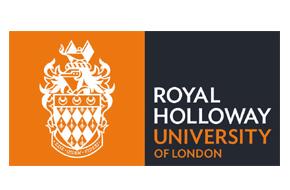For more information about Royal Holloway, please see this promotional video. To see a promotional video for the MA Consumption, Markets & Culture see here. To see a promotional video for the Royal Holloway School of Management, click here.
For more information about the Royal Holloway MA Marketing and MA Consumption, Culture & Marketing and the application process see here.
To get an understanding of the unique values that underly the MA Marketing and MA Consumption, Culture & Marketing programme please read these blog posts: Value of Scholarly Values, Importance of Reading and Morris Holbrook and Business Interest in Education.
To see examples of previous students work please click through to see the work of Yelena Sherbakov, Igor Korovenkov, Klara Scheurenbrand, Christina Demertsidou, Liliya Tokmantseva, Hafez Rafirasme, Asya Medvedeva, Vera Hoelscher, Milena Citton, Tracey Wechie, Hector Murphy and Alejandro Gallindo Diego.
Friday, 9 March 2012
Brands in TV Content- How They Get There in UK TV
Have you ever wondered how brands get into TV scenes? Perhaps you've assumed that they're all paid for in clandestine deals designed to culturally manipulate us into a brand consumer mindset. The cultural manipualtion may be a reality, but the way brands appear on TV is more ad hoc and serendipitous than you might think. The truth is that the volume of programming is so huge that most brands in TV are there because the producer and props manager need props for the scene and no-one has time to set up a deal.
In the UK, brands were not allowed to pay TV companies directly to appear in scenes until last year. In February 2011 the UK media regulator, Ofcom, decided that UK TV needed the money and finally allowed paid-for product placement. The problem for the industry is that is simply hasn't taken off and the TV companies aren't making any money from it.
This is partly due to the complexity of Ofcom's rules which, among other thnings, ban paid-for placement of alcohol, cigarettes, guns and high fat food. In other words, all the stuff you watch TV to see. The high fat foods ban even means that a cooking show can't do a deal for cooking oil or cheese.
But there is another reason the UK TV paid-for market has flopped. It's because UK TV has been liberally supplied with branded scene props free of charge for over 30 years. In the picture above, a Blackberry is seen from a BBC show. Yes, even the non-commercial BBC need realistic scene props. The UK has about 12 product placement agencies supplying free props for domestic TV production. Some of these agencies started the business three decades ago. They collect a retainer fee from the brand client and give the TV companies all the scene props they want for nothing. Its a well-established business model everyone understands.
The Ofcom rule change allowed TV companies to do deals with brands dierctly for guaranteed placements, but they have a hard sell. They're asking brand clients to pay double the fee they pay the agencies for free prop supply in return for a tenth of the screen time, and they can't even guarantee a close-up under Ofcom's strict rules on prominence and editorial relevance.
We've been looking into this complicated policy issue which will have a huge influence on how UK TV looks in the future. The TV companies are desperate to benefit from the fat revenue streams paid-for product placement can bring, but many in the UK are worried about commercial influence in the way UK TV looks.
More on this at www.chris-hackley.com
Subscribe to:
Post Comments (Atom)


No comments:
Post a Comment